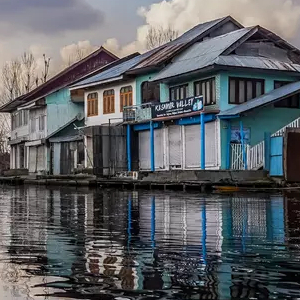The 2022 ISO Research Grant is funding work to identify climate adaptation measures that could be standardized in response to global rises in sea level. Such measures span many fields, from nature-based solutions to dikes and drainage systems. The research will also engage with a wide range of coastal communities, including some of the most vulnerable, which are often overlooked. We put five questions to researchers Filippo Grillo and Martijn Wiarda to find out more about their work.
Sea level rise touches many areas – what is the overall approach that you will take?
Filippo: Our research will go through several phases over the next year. We will begin by taking stock of the potential adaptation measures to sea level rise that exist today. We will build on this by “mapping” which existing standards relate to these measures. Through global deliberations, we will try to understand which opportunities are deemed most urgent and globally relevant. This is a massive process. Luckily, we will receive support from other academic researchers including Prof. Henk J. de Vries (Erasmus University of Rotterdam), Prof. Neelke Doorn (Delft University of Technology), and Dr Geerten van de Kaa (Delft University of Technology).
Why is such a “globally deliberative approach” important?
Martijn: Although sea level rise affects nearly all coastal communities, we know that communities are unevenly affected. Moreover, they do not share the same needs and abilities. Sea level rise therefore urges us to be sensitive of local contexts that are characterized by unique socio-economic, institutional, and geographical conditions. Our deliberative approach means that we not only involve conventional experts but will also try to include local stakeholders. Their experiences help contextualize the problem and required measures. This type of engagement is also important for bottom-up support.
This month, the world’s attention is fixed on the UN climate meeting, COP27, how does your research fit with existing global efforts?
Martijn: Although we will not attend the COP27, our research resonates with a broader discourse on climate adaptation in response to sea level rise. For instance, we build on the IPCC reports by mapping what protective, accommodating and retreating adaption measures are used by practitioners. In addition, our research will complement many climate initiatives in the sense that we bridge stakeholder perspectives to identify common ground for climate action. In this way, we’re creating momentum for a collectively supported response.
Filippo: And besides COP27, whose programme is partially dedicated to water, this project aligns with the purposes of some UN SDGs, and with work programmes of the UNDRR and the World Bank among others. For example, we observed procedures of risk assessment and alarm systems that differ from country to country – what’s needed is a globally supported set of rules for climate adaptation.
How do you think this research can be built upon, or put into practice?
Filippo: Our research informs decision-makers about climate adaptation measures that are globally relevant and which could benefit from standardization. Because committee-based standardization is a consensus-driven process, we will examine what opportunities for standardization offer room for consensus. With these insights, ISO can potentially establish work groups to address these opportunities to bring together fragmented knowledge and build powerful networks. We also intend to involve other regional and national standards bodies, as well as other public and private institutions possessing such knowledge.
Outside perspective
Find out more about Fillipo and Martijn's research at Delft University of Technology

